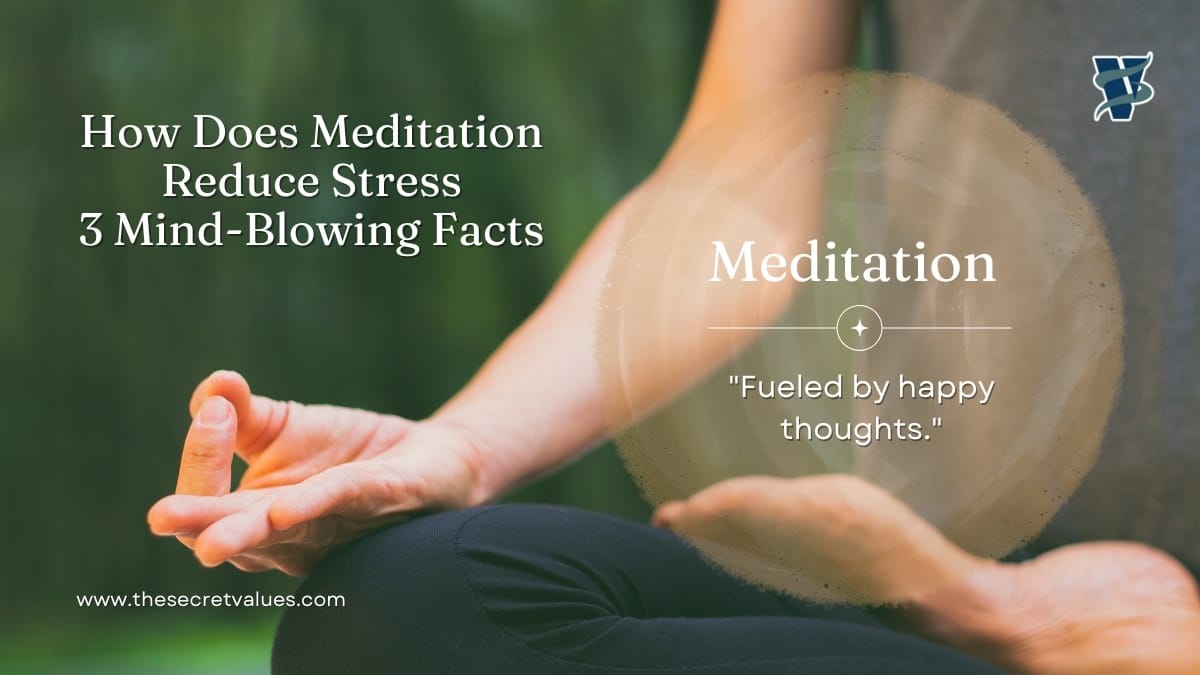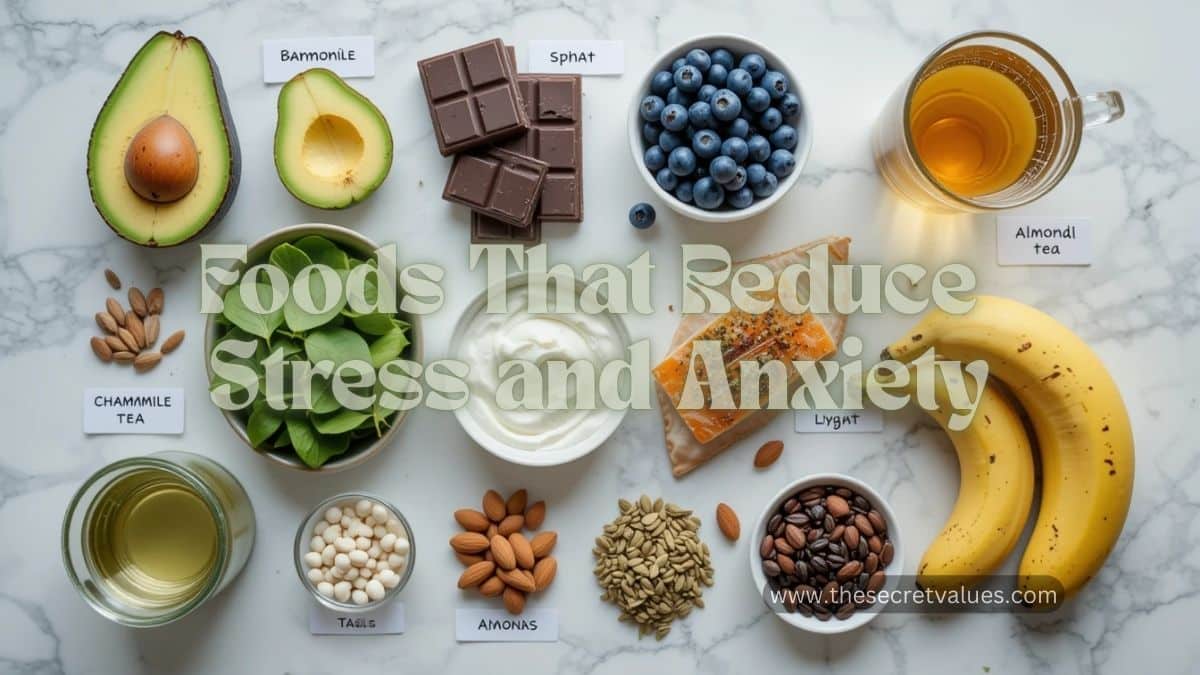Introduction
Let’s be realistic—life can be pretty stressful. Stress, whether due to work deadlines, family responsibilities, or the chaos of everyday life, always finds its way in. But have you ever wondered how does meditation reduce stress? It’s not just some ancient practice but a science-backed solution to managing chaos.
What if I told you there’s an easy method of fighting it? That’s precisely where meditation comes in. Meditation is not some fad phrase but a tried and tested technique to reduce stress and improve mental well-being. Stress has become an unwelcome guest, often knocking us off balance. But have you ever wondered how does meditation reduce stress? It’s not just some ancient practice but a science-backed solution to managing chaos.
What is Meditation?
Definition of Meditation
Meditation is a technique that requires placing one’s thoughts at the center in a bid to achieve mental clarity and emotional calmness. It’s like giving your brain a much-needed spa day.
Types of Meditation Practices
- Mindfulness Meditation: Being present in the moment.
- Transcendental Meditation: Repeating mantras to reach deep relaxation.
- Guided Meditation: Using external aids like apps or audio guides.
How Does Meditation Reduce Stress?
Scientific Explanation of Stress Reduction
Meditation works wonders on the brain by reducing cortisol, the stress hormone. When you meditate, your body shifts from a fight-or-flight mode to a rest-and-digest state, helping you feel calmer and more focused.
Impact on Mental Clarity and Emotional Balance
Consistent meditation will improve your capacity for clear thinking and better emotional management. Feeling overwhelmed? Just a few minutes of mindfulness can make a huge difference.
3 Mind-Blowing Facts About Meditation and Stress
Fact 1: Meditation Rewires Your Brain
Did you know that meditation can physically change your brain? Studies show it increases grey matter in areas linked to emotional control and self-awareness. Imagine sculpting your brain into a stress-busting machine!
Fact 2: Meditation Boosts Your Immunity
Anxiety compromises your immune response, increasing your susceptibility to sickness. By reducing stress, meditation helps your body’s defence mechanisms stay strong. It’s like giving your immune system a protective shield.
Fact 3: Meditation Enhances Productivity
When stress levels drop, your mind becomes sharper and more focused. Successful people like Oprah and Steve Jobs have sworn by meditation’s ability to improve decision-making and creativity.
How to Do Meditation at Home
Preparing Your Space
- Find a Quiet Area: Choose a spot free from distractions.
- Set the Mood: Use dim lighting and soothing scents like lavender.
Basic Meditation Techniques
- Breathing Exercises: Focus on slow, deep breaths.
- Mindfulness Meditation: Focus on your thoughts without criticism.
Advanced Tips for Meditation at Home
- Use apps like Calm or Headspace for guided sessions.
- Stick to a routine for consistent results.
How Can I Meditate at Home Effectively?
Creating a Routine
Pick a time that works for you, whether early morning or before bed. Consistency is the key.
Overcoming Challenges
- Distractions: Use noise-cancelling headphones.
- Lack of Motivation: Keep in mind the advantages and establish minor objectives.
How Does Meditation Reduce Stress in Different Age Groups?
Children and Teenagers
Meditation helps young minds focus better in school and manage peer pressure effectively.
Adults
Meditation is an excellent tool for working professionals to manage deadlines and office stress.
Seniors
Older adults benefit from reduced anxiety and better sleep, promoting overall well-being.
The Role of Technology in Meditation at Home
Insight Timer is a popular app for tracking meditation, while wearables like Fitbit can keep you on course.
Common Myths About Meditation
- Myth 1: It’s only for spiritual people.
- Myth 2: You need hours to meditate effectively.
- Myth 3: Meditation means emptying your mind. Spoiler alert: It doesn’t!
Benefits of Meditation Beyond Stress Reduction
- Better sleep patterns.
- Improved physical health through lower blood pressure.
- Enhanced creativity and innovative thinking.
Incorporating Meditation into a Busy Schedule
Even five minutes during a lunch break can do wonders. Try mindfulness while commuting or deep breathing exercises before meetings.
Success Stories: How Meditation Changed Lives
People worldwide have turned their lives around with meditation. Take Sarah, who overcame anxiety with daily mindfulness, or Alex, whose productivity skyrocketed after practising transcendental meditation.
Conclusion
Meditating transforms lives rather than only providing a means of stress release. Meditating just a few minutes will help you to change your day whether your schedule is hectic or you are experiencing emotional conflict. So, why not start today?
FAQs on Meditation and Stress Reduction
- How does meditation reduce stress effectively? Meditation calms your mind and lowers cortisol levels, creating balance.
- How do beginners meditate at home? Start with basic breathing exercises and use guided meditation apps for assistance.
- How long should I meditate daily to see results? Even 10 minutes a day can make a noticeable difference in reducing stress.
- Can meditation replace therapy for stress? Meditation complements therapy but doesn’t replace professional help for severe anxiety.
- What is the best time to meditate at home? Early morning or before bedtime are ideal, as they’re quieter and more peaceful.








2 thoughts on “How Does Meditation Reduce Stress: 3 Mind-Blowing Facts”